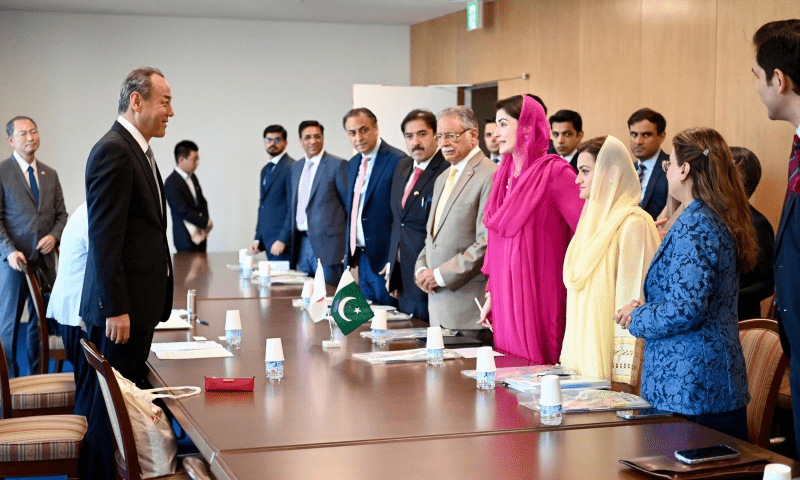Arshad Mahmood Awan
The recent official tour to Japan under the leadership of Punjab Chief Minister Maryam Nawaz has reignited debates around governance, accountability, and the crisis of urban development in Pakistan. The tour was presented as an opportunity to study Japan’s urban development model, yet glaringly, the delegation did not include professional urban planners, developers, or policy think tanks. This omission underlines a critical flaw: policymaking in Pakistan remains detached from expertise, reducing serious development opportunities into symbolic exercises with little long-term value.
The absence of technical professionals in such high-level delegations reflects a larger structural issue in Pakistani governance. Bureaucratic culture is deeply embedded in a cycle of ceremonial “study tours” where large sums of taxpayer money are spent but few tangible outcomes are achieved. Countries like Japan offer vast lessons in sustainable infrastructure, transport systems, housing models, and environmental adaptation. However, to translate those lessons into Pakistan’s context requires institutional planning, professional knowledge, and capacity building—none of which were meaningfully represented in this tour.
Follow Republic Policy on YouTube
The persistence of this practice points to a Mughal-style governance mindset, where ruling elites—both elected politicians and unelected bureaucrats—consider state resources as personal privileges. Instead of approaching governance through transparency and accountability, decisions are framed through a narrow elite lens. Such behavior perpetuates a disconnect between the state and the people, where symbolic visits replace practical policymaking, and grand announcements overshadow the lived realities of urban crises in Lahore, Faisalabad, Gujranwala, and other expanding cities.
Follow Republic Policy on Twitter
Urban Pakistan today is suffocating under mounting challenges. Rapidly increasing populations, unplanned settlements, decaying infrastructure, inadequate transport systems, and pressing environmental concerns make urban development one of the most urgent national priorities. Globally, urban planning is a scientific discipline linked with universities, research institutes, and specialized professional forums. In contrast, Pakistan reduces this critical field to bureaucratic discretion, leaving strategic urban planning hostage to administrative control and ceremonial international visits.
Follow Republic Policy on Facebook
The credibility crisis of such foreign tours grows when citizens witness the lack of follow-up. Billions are allocated for delegations, yet urban life continues to deteriorate, marked by water scarcity, traffic chaos, housing shortages, and environmental degradation. For citizens, this amounts to political deception—taxpayer resources are diverted into tours and allowances that yield no visible benefit for public welfare. The state’s legitimacy is weakened as citizens increasingly view governance as serving elite consumption rather than collective progress.
Follow Republic Policy on TikTok
In the Republic Policy perspective, the solution lies not in ceremonial engagements but in embedding expertise and accountability into the policymaking process. Urban development must be reframed as a professional science, not a political showpiece. Specialists must guide policy, institutional capacity must be strengthened through sustained programs, and bureaucrats must be held accountable for outcomes rather than just expenditures. Only through such reforms can Pakistan hope to align its urban future with global best practices while responding to its unique local challenges.
If the current model of governance continues, Pakistan will witness more photo opportunities abroad but continued neglect of its cities at home. The core needs of urban populations—safe drinking water, efficient public transport, sustainable housing, and environmental protection—will remain unaddressed. Citizens must recognize that real progress lies in demanding accountability, professional inclusion, and evidence-based policymaking. Urban development cannot remain the domain of ceremonial visits; it must become the cornerstone of Pakistan’s governance future.
Follow Republic Policy on YouTube
Ultimately, the question is not whether Pakistan’s leaders can observe foreign models but whether they are willing to adapt them with professional expertise and institutional reforms. Without this shift, governance will remain trapped in a cycle of appearances, while urban Pakistan continues to sink deeper into crisis. Citizens, policymakers, and institutions alike must acknowledge that accountability and professional inclusion are not optional—they are the only path forward to sustainable urban development and genuine democratic governance.
















